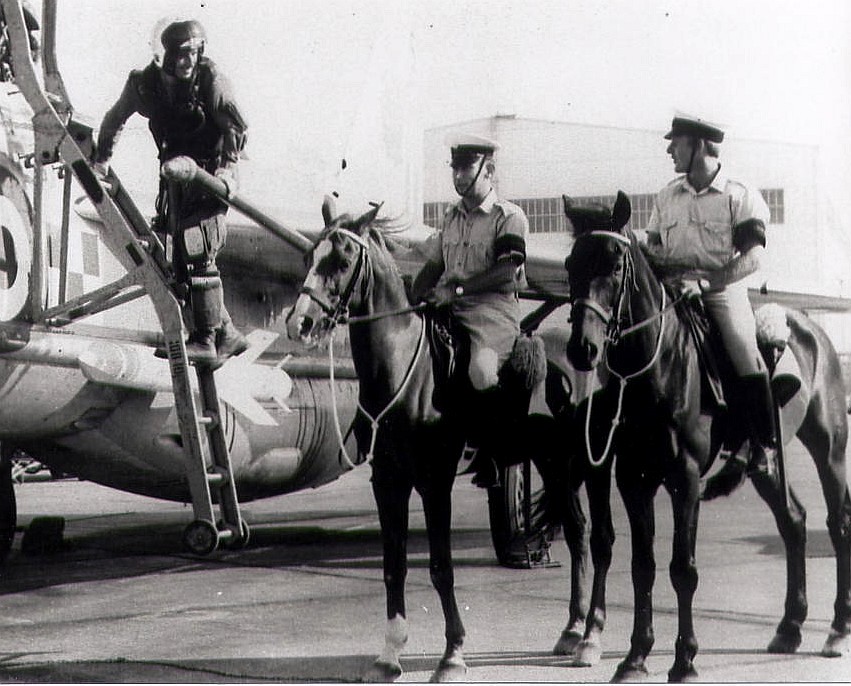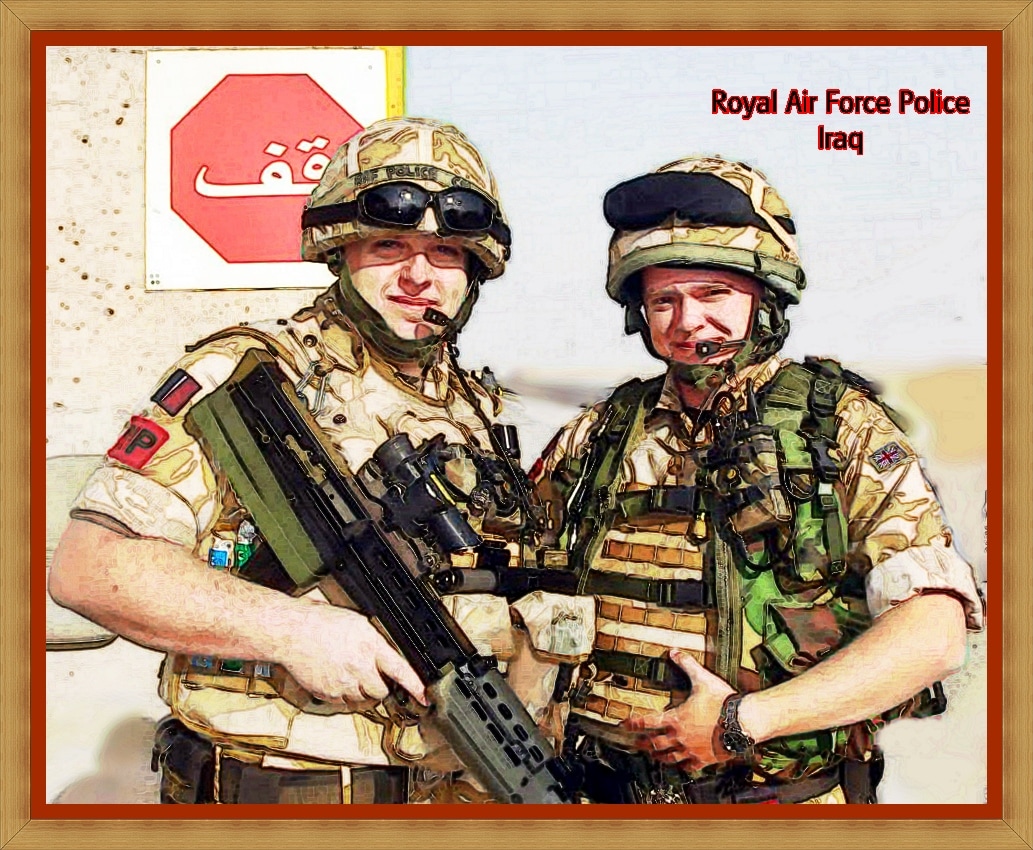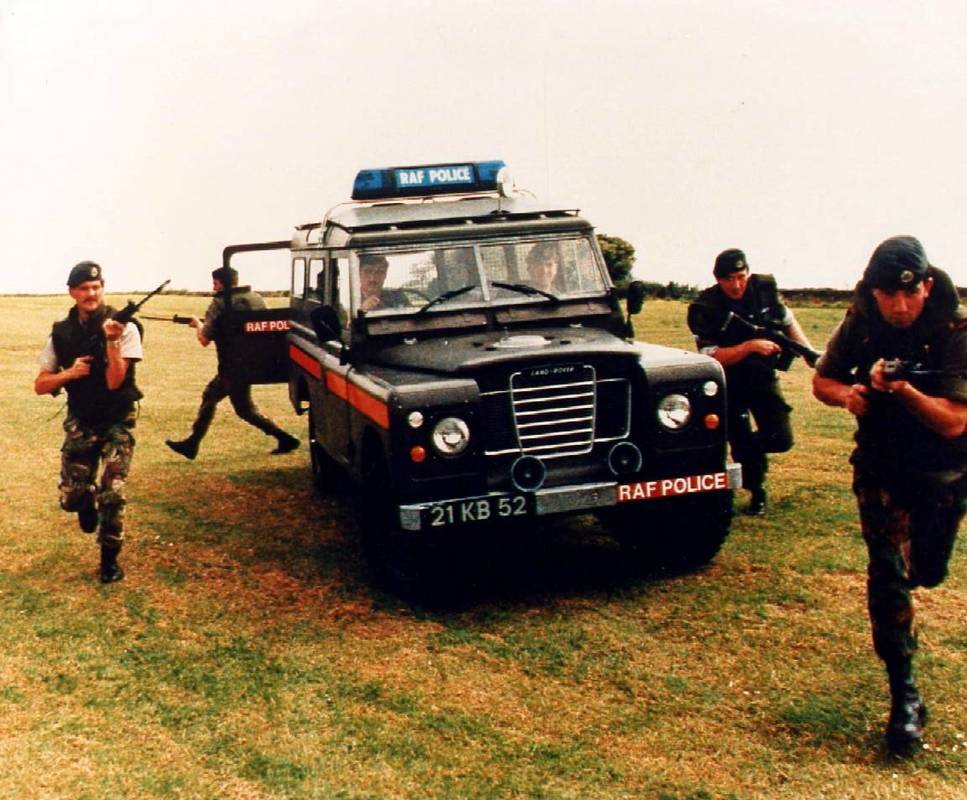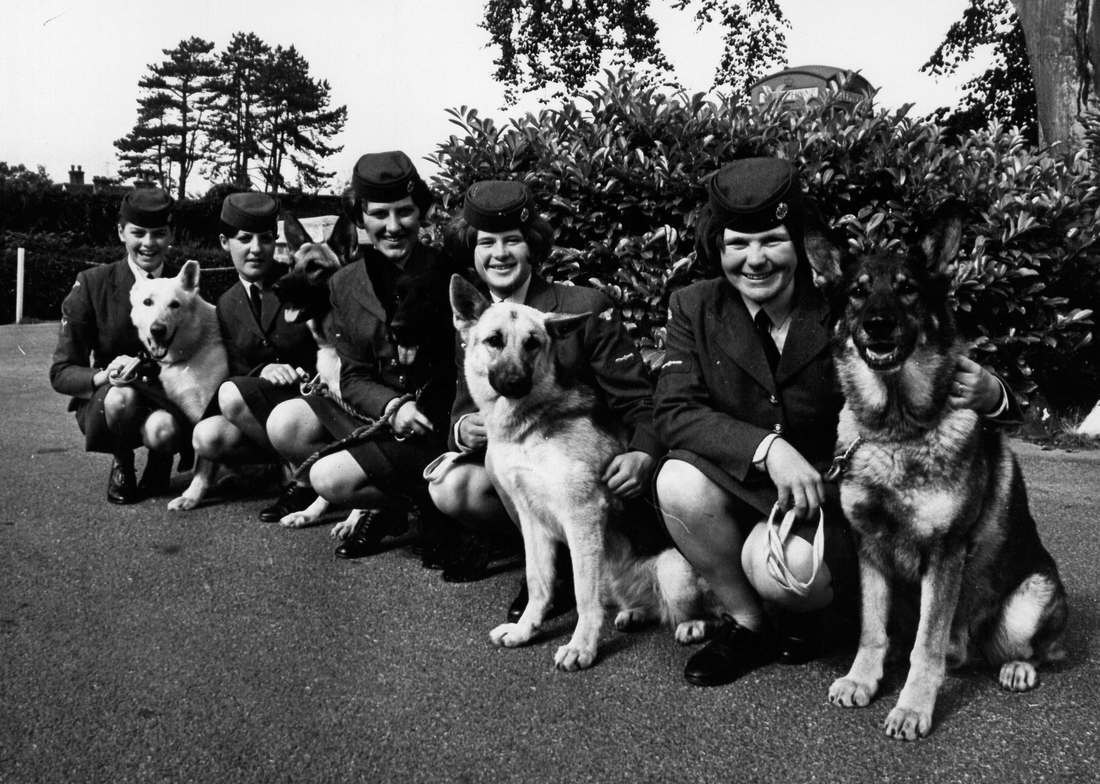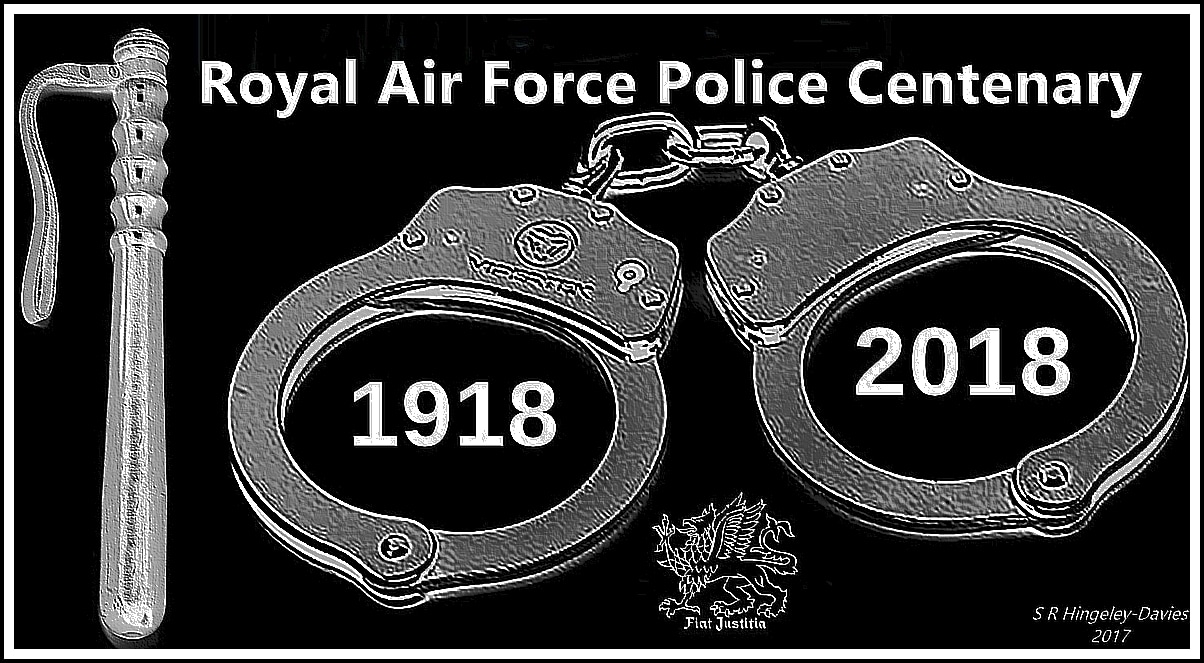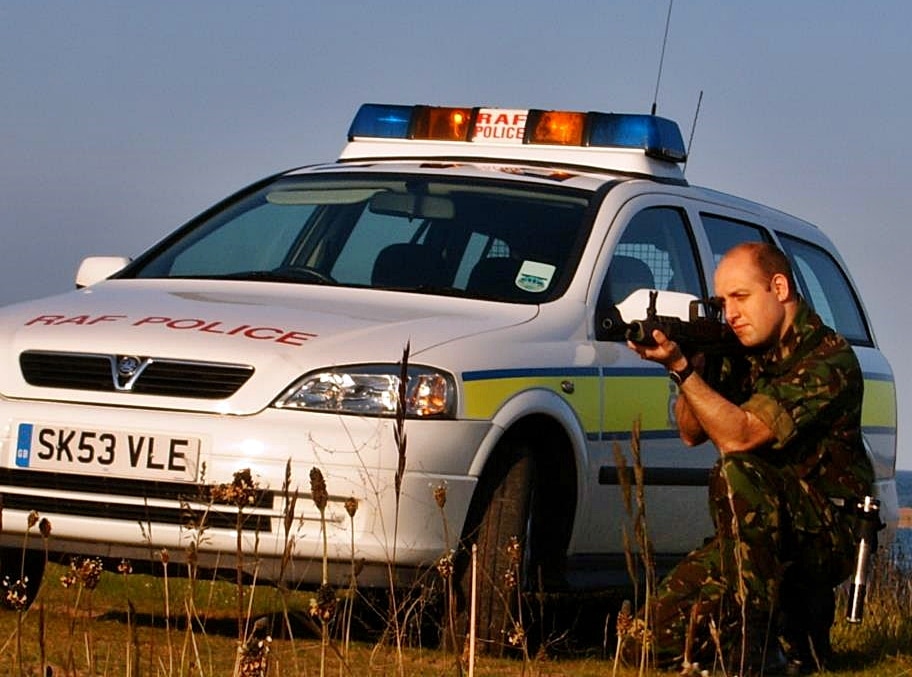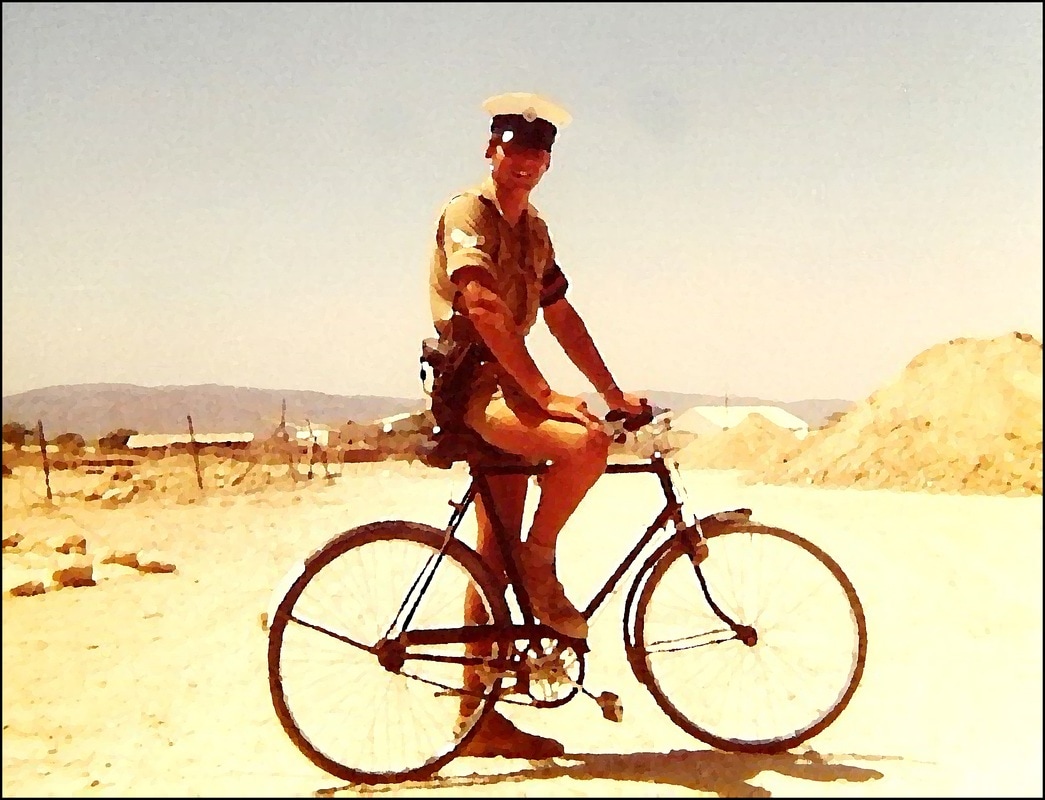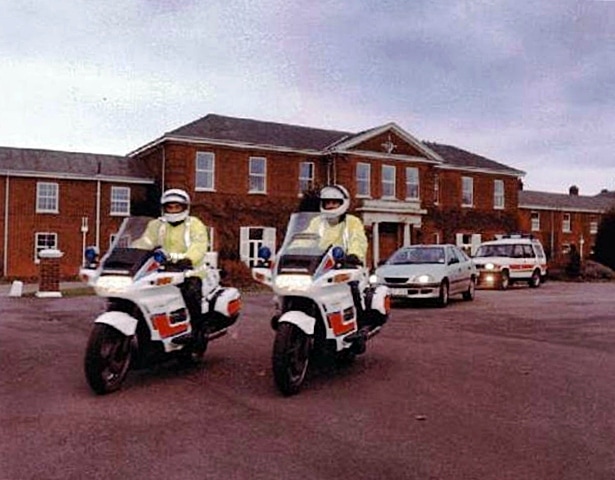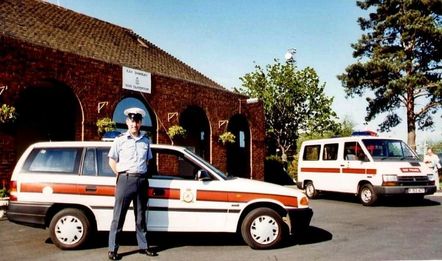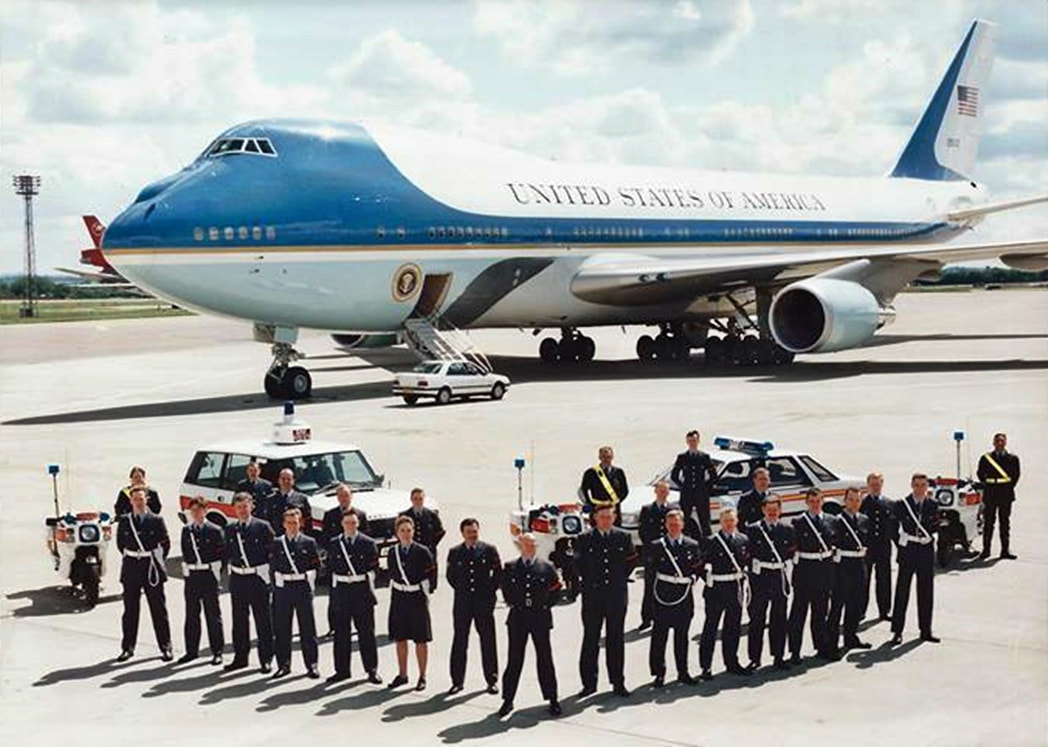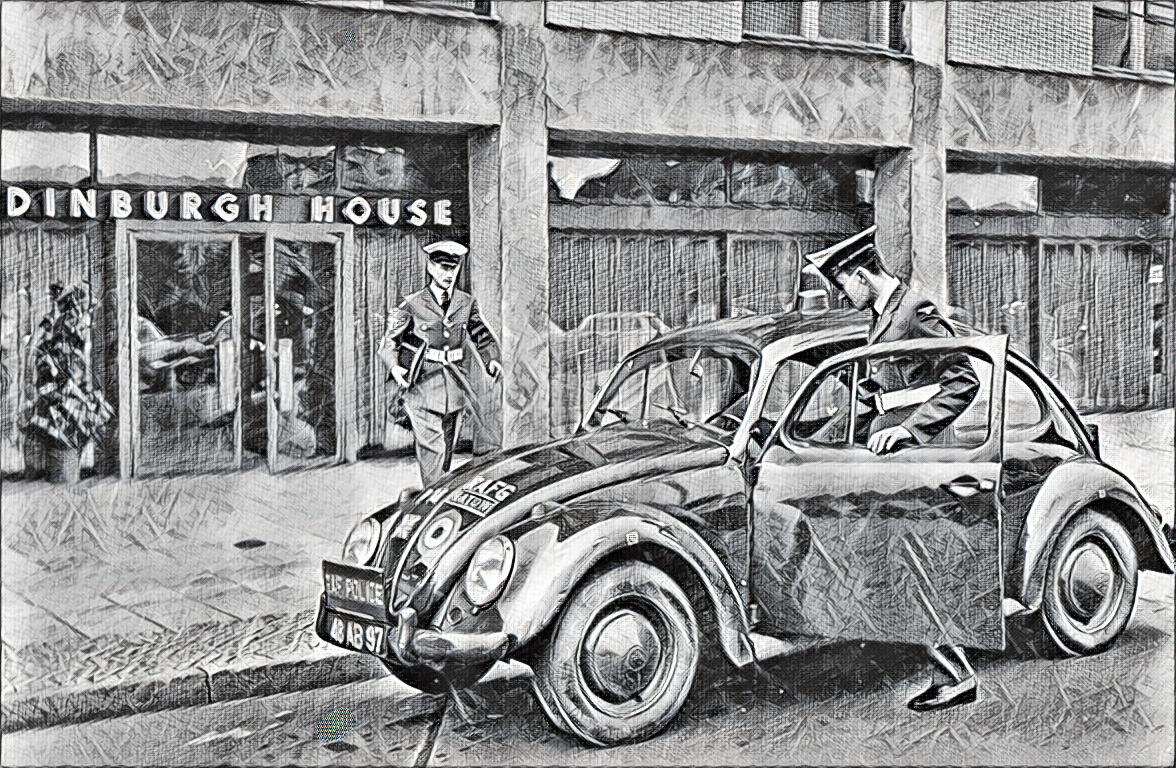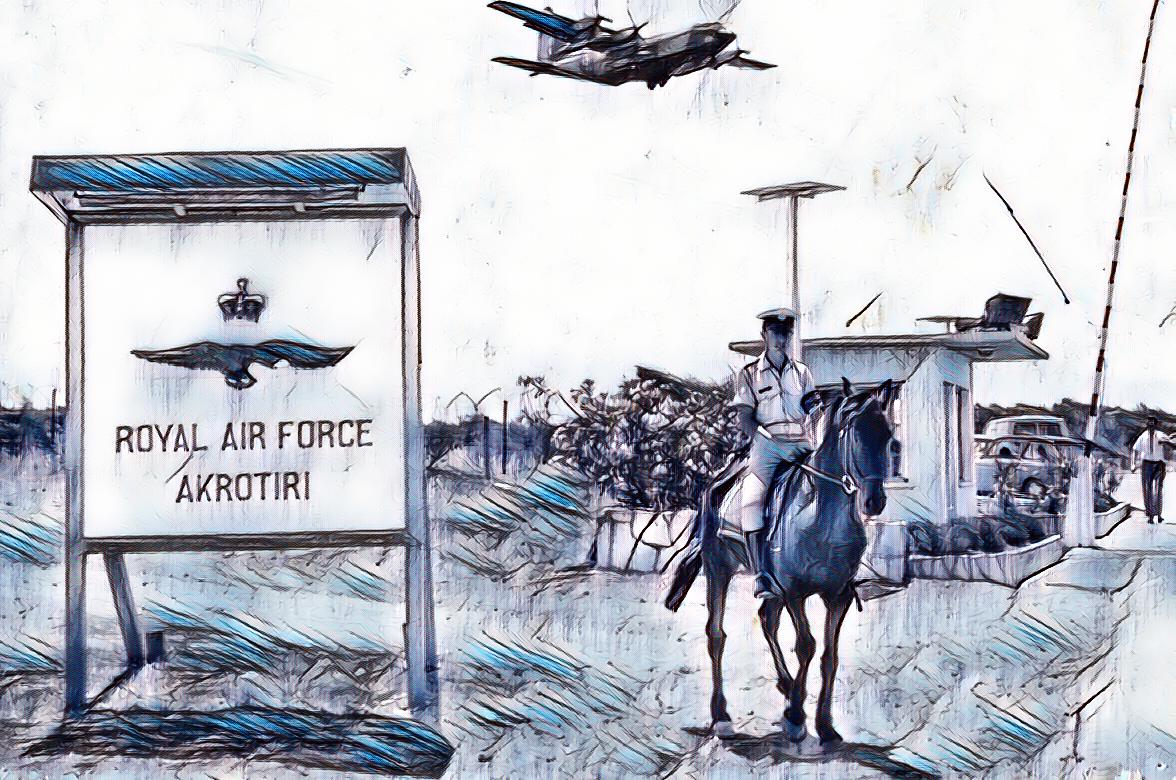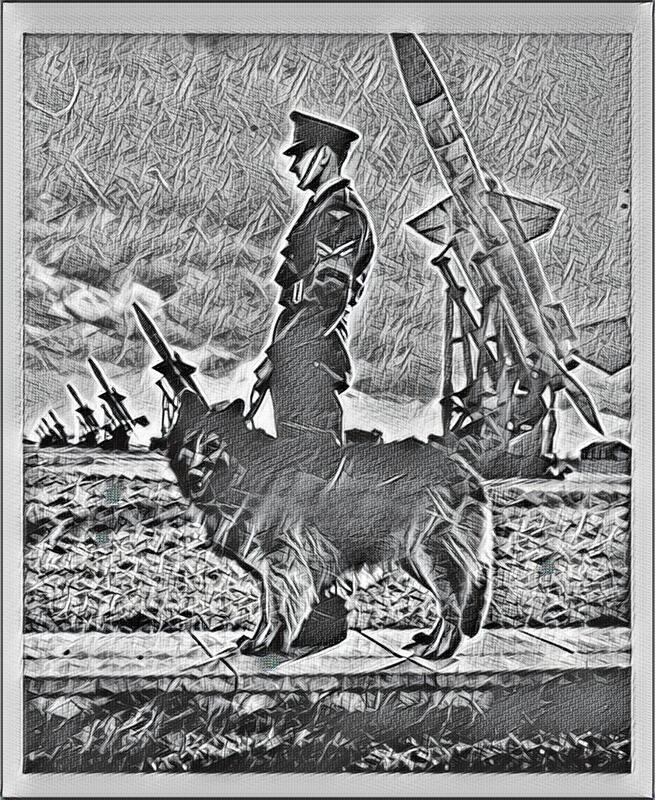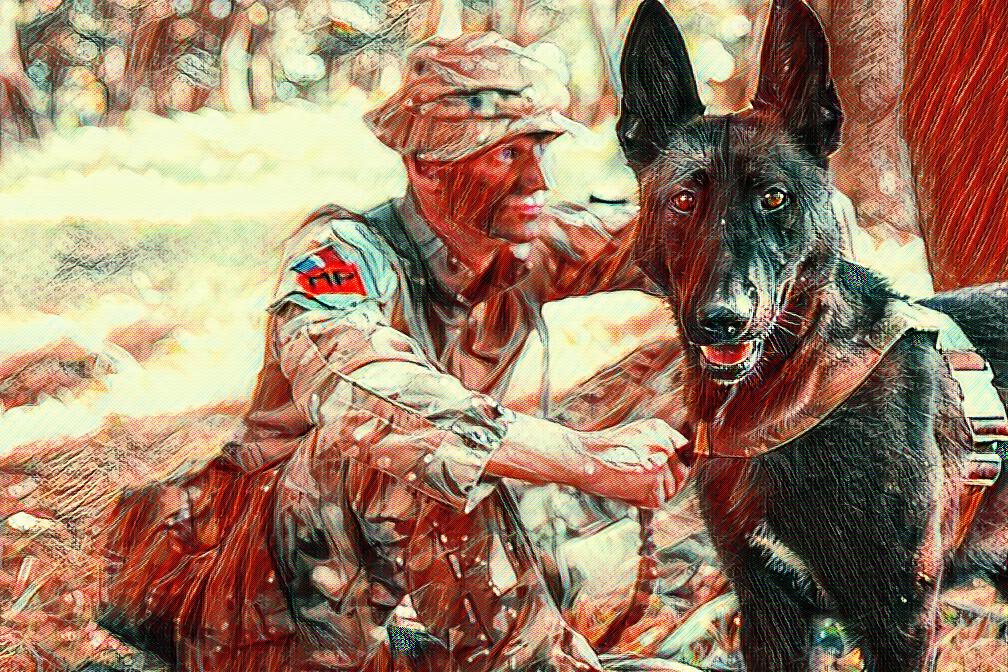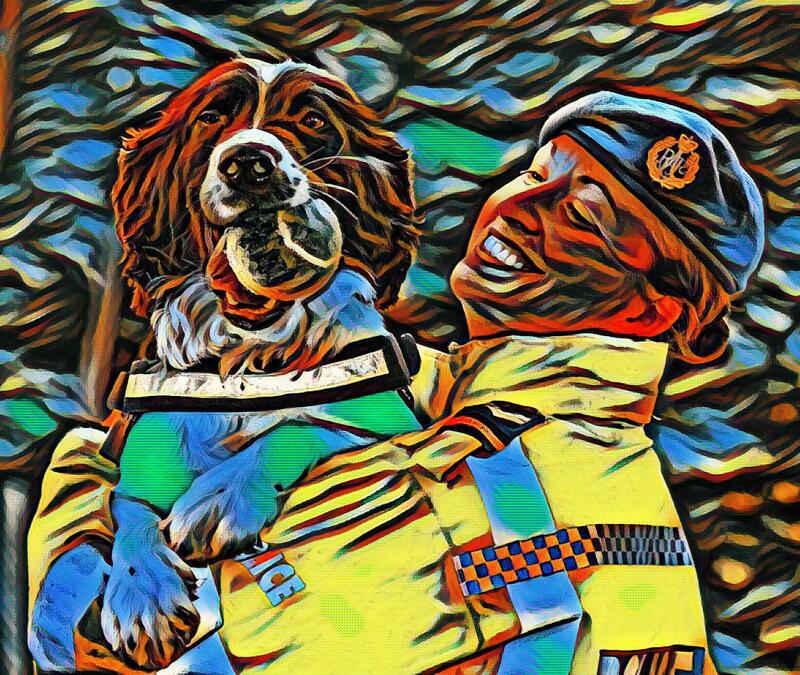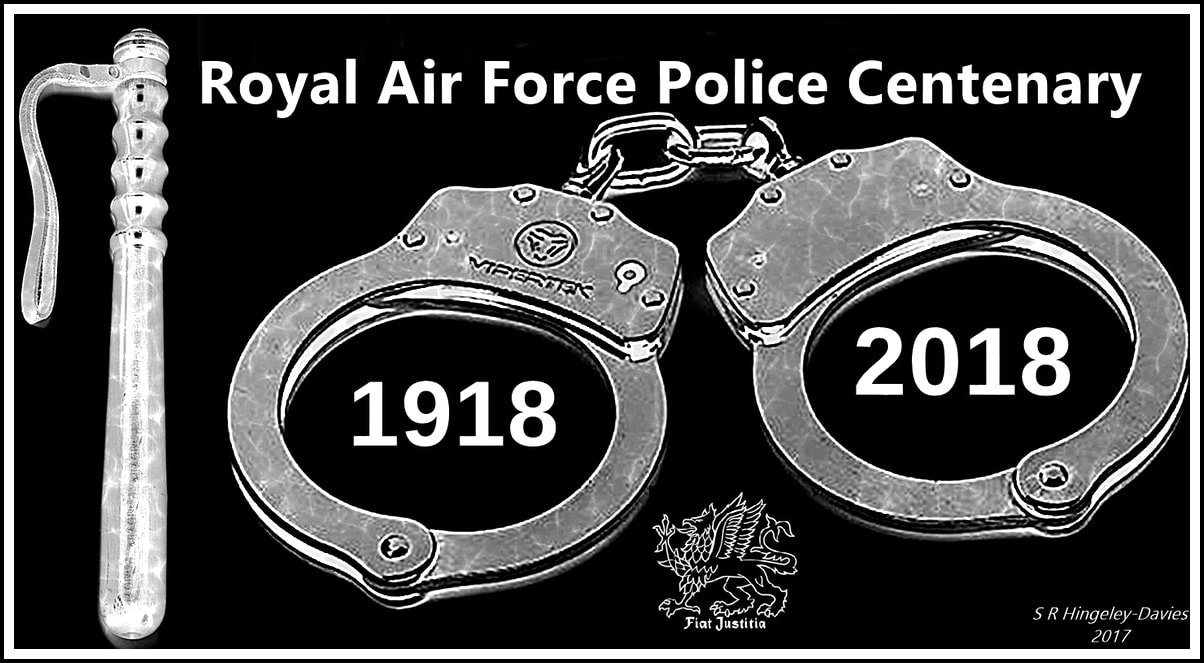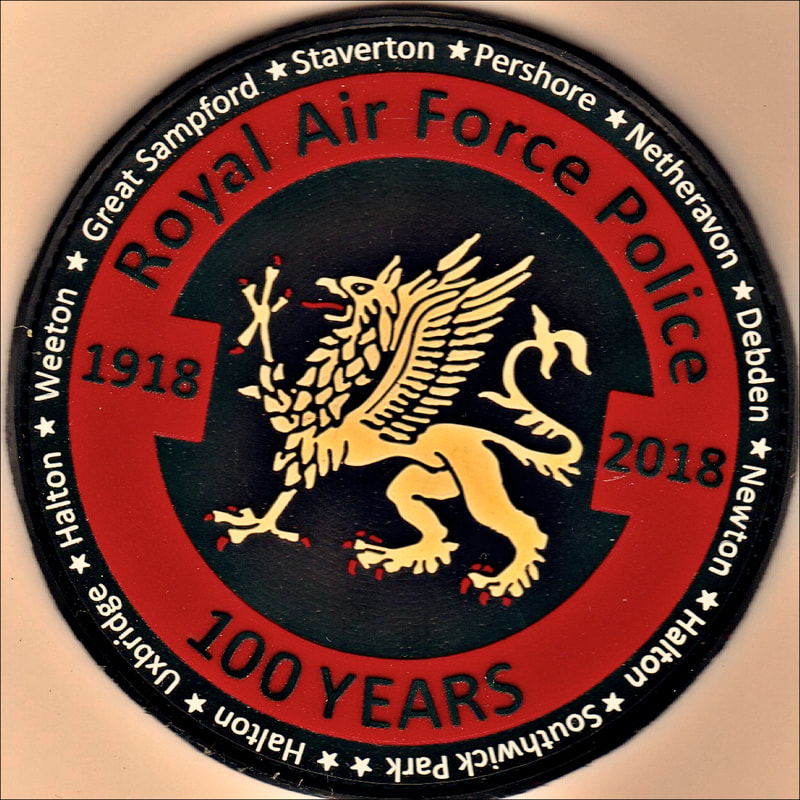|
« MY BOOKS - MY BOOKS The following titles have been published as electronic books and in most cases as real books and are available to buy from the Amazon / Kindle website: FIAT JUSTITIA – A HISTORY OF THE ROYAL AIR FORCE POLICE, the original book that was published in 1994, is no longer available from the original publisher in hard form but is still available as an e-book from Amazon. GLOBAL HISTORY OF THE RAF POLICE (Europe) – Volume 1, traces the creation and development of RAF Police and describes in detail the wide ranging operations undertaken by this unpretentious but highly specialised branch of the Royal Air Force within Europe since 1918. Following the formation of the RAF in 1918, the new service remained dependent upon Army military police skills but in 1919, the transfer of responsibility for policing RAF units by the RAF Police was authorised and the last Army officer at the Air Ministry responsible for police matters was replaced by an RAF officer. In 1931, the office of Provost Marshal (RAF) & Chief of Air Force Police was officially approved by HM King George V. During World War II, the RAF Police rapidly expanded to support war operations in the UK, Iceland and the Açores. They formed part of the British Expeditionary Force into France and were later deployed onto the Normandy beaches on D-Day to help liberate Europe from the Nazi regime. In late 1944, they became caught up in the Greek civil war, and at the end of hostilities the RAF Police had 21,000 men and women serving within its ranks. On the 1 July 1947, with the subsequent growth of the officer corps, the Provost Branch was formally constituted by HM King George VI. In September 1950, the King also approved a badge for the RAF Police, with the motto, Fiat Justitia; freely translated as Let justice be done. Throughout the period of the Cold War the RAF Police were responsible for safeguarding RAF nuclear weapons deployed on immediate standby. The RAF Police have supported operations in Northern Ireland as well as NATO and UN operations in the troubled Balkans. With the establishment of the Military Provost Guard Service (MPGS) on RAF stations to undertake armed guarding and routine security tasks and the introduction of the RAF Force Protection Organisation in 2003, the RAF Police were subjected to large-scale reductions in personnel and a major realignment in the way the branch supported global RAF tactical operations and joint military manoeuvres. In 2005, the former RAF Provost & Security Services (P&SS), was renamed as the Headquarters Provost Marshal (RAF). The Air Commodore relinquished his office as Provost Marshal to a provost Group Captain before taking up his new appointment as Assistant Chief of Staff Force Protection & Air Officer RAF Police. The change at the top was brought about to allow the Air Commodore to concentrate on directing the wider aspects of Force Protection, whilst allowing the Group Captain to independently manage all police investigatory functions. GLOBAL HISTORY OF RAF POLICE (Dogs) – Volume 2. A RAF Police dog team are on patrol protecting the aircraft that are ready for their next mission. In the darkness the dog suddenly picks up on an unfamiliar scent, his hackles rise and he strains at his leash. The handler knows that something is amiss and immediately sends a discreet radio message as the dog leads him towards the source of the scent. Suddenly, a figure breaks cover and starts to run off into the darkness. The handler immediately shouts ‘Halt or I’ll release my Dog’, but the man ignores the warning hoping to make good his escape. The handler releases his dog and in a matter of seconds the dog has brought him down and stands guard over the terrified intruder until the handler arrives to take charge. While the dog continues to guard the man, the handler requests urgent assistance and another attempt to interfere with the country’s defences was foiled by the vigilance of the RAF Police dog team. This book traces the colourful history of the deployment of dogs by the RAF Police since 1944, during which time this branch of the RAF has earned a glowing reputation at home and abroad for the high standard of training exhibited by its dog teams and for its highly professional use of dogs for patrols and specialist duties. The RAF story really begins in 1942, at the height of World War II, when Lieutenant Colonel Baldwin formed the Ministry of Aircraft Production Guard Dog School (MAPGDS) at Woodfold near Gloucester, turning out professionally trained RAF dog handlers which in turn released hundreds of men for war duties who had previously been employed as guards. In 1944, the MAPGDS was absorbed by the RAF Police and re-titled as the RAF Police Dog Training School and from that point onwards, the RAF Police was to be at the forefront of the development and training of dogs for security purposes. In 1949, the RAF Police Dog Demonstration Team appeared for the first time at the Royal Tournament in London and became an instant public success. In 1957 the first annual RAF Police Dog Championship Trials were held at Netheravon. In 1969 the Dog Demonstration Team covered 8,000 miles around the USA and Canada giving 65 public performances in 23 cities and became a firm favourite at every venue. The RAF began training dogs to detect illicit drugs in 1970 and since 1971 RAF Police dogs on loan to HM Customs & Excise have recovered illicit drugs with a street value of many millions of pounds and are a significant deterrent to smugglers. Dogs were later successfully trained dogs to detect firearms and explosives. GLOBAL HISTORY OF THE RAF POLICE (S Africa to Afghanistan) – Volume 3, outlines in detail the RAF Police mission to support the RAF in both war and peacetime operations in Africa, Cyprus, the Middle East, Aden, Iraq and Afghanistan. After the formation of the RAF in 1918, members of the RAF Service Police were deployed on RAF airfields in Iraq, Palestine and in Egypt. After the outbreak of World War II, the RAF quickly expanded and so did the RAF Police. RAF deployments throughout Africa, Malta, Cyprus, the Middle East and Iraq rapidly spread and additional RAF Police units were formed to support RAF commanders on the ground. Violent post-war anti-colonial unrest within Palestine and in Egypt saw the RAF Police at the very forefront in protecting RAF units, aircraft, materiel and personnel from the daily threat of terrorism, sabotage, subversion, espionage and widespread pilfering. Additionally, similar RAF Police operations undertaken during the later Mau Mau uprising in Kenya, the Cypriot EOKA terrorist campaign and the Yemeni backed guerrilla conflicts within Aden and Oman were extremely effective in maintaining RAF security on the ground and in the air. As the global political situation changed and the operational range of military aircraft increased, the RAF withdrew from its former units within the region but maintained an ever-ready presence on the troubled island of Cyprus. RAF Police units served alongside Coalition forces in both Gulf wars against Saddam Hussein, and during operations in Afghanistan against the Taliban and Al-Queda. RAF Police teams have rescued British and foreign civilians from war-torn Beirut and were also deployed to Sierra Leone in 2000 to support British military operations to stabilise the country after a bloody civil war. GLOBAL HISTORY OF THE RAF POLICE (India to Ascension) – Volume 4, outlines in detail the RAF Police mission to support the RAF in both war and peacetime operations in a vast area of the world stretching south from the Himalayas through Asia, Australasia and into New Zealand, across the Pacific to the Americas and finally to the South Atlantic. GLOBAL HISTORY OF THE RAF POLICE (The Great Escape From Stalag Luft III) - Volume 5. This book tells the remarkable story of the Great Escape made by British, Commonwealth and Allied prisoners-of-war from Stalag Luft III, in March 1944; the brutal murder of fifty of the recaptured RAF officers by the Gestapo on the orders of Hitler; the story of those recaptured and sent to concentration camps; and, the subsequent complex post-war investigation, carried out by the RAF Police Special Investigation Branch, which identified, from the German High Command, those responsible in the conspiracy to murder the fifty as well as their Gestapo executioners. Indeed, the wanted Gestapo and Criminal Police who had survived the war were swiftly hunted down in the chaos of worn-torn Europe and rounded up as war criminals by the small but dedicated investigation team and brought to justice in Hamburg. Sixteen of those found guilty by the International and British War Crimes Tribunal were sentenced to death and were hanged at Nuremburg and Hamburg while a further four were hanged by the authorities in Czechoslovakia for a variety of war crimes against humanity; others found guilty by the tribunals of complicity received various terms of imprisonment. Regrettably, a change in British government policy in 1948, prevented others arrested by the RAF Police from being prosecuted by the International War Crimes Tribunal and in most cases they walked away with blood on their hands as free men. This remarkable war crimes investigation, the only one of its kind entrusted to a British military police force, began at the end of hostilities in 1945 and twenty-three years later in 1968 one of the last suspects in the case was traced and convicted by a West German Court for his part in the mass murder of RAF prisoners-of-war. RAF POLICE - SNOWDROPS HUMOUR. This book, guaranteed to have you in tears as you read some of the things that go on out there, contains a collection of real-life anecdotes, humorous stories and cartoons, a number of which come from the 1950s when a minority of National Servicemen viewed the RAF Policeman as his biggest irritation. All the articles have been contributed by former RAF Policemen, otherwise known as the Snowdrops to the wider RAF community. It’s the type of book you can read sitting on the loo, but you might be inclined to stay longer than you should, or you can take it to bed and fall asleep chuckling without worrying about losing the plot, and of course, its great company while you’re in the car waiting for the wife or kids, but be warned, passers-by might think you’ve gone completely mad as they hear you crying out with laughter to yourself. RAF POLICE – IN THE LINE OF FIRE. This informative book describes the involvement of the RAF Police during Britain’s global conflicts between 1939 and 2016, and is certain to be of great interest to those who have read my previously published books about the RAF Police. While, there is much to be enjoyed by anyone who served in the RAF Police, it will also be of interest to anyone who has a general interest in the RAF or modern military history and current affairs. WHITECAP TWO-FIVE. In this entertaining and impressively extensive memoir, Stephen R Davies looks back on his eventful 25-year career in the RAF Police from 1975 to 2000, during which time he worked at various locations in the UK and overseas in Germany, Belize, Ascension Island and New Zealand. In the course of his career the author would be involved in a wide variety of police work, from routine security duties to specialist criminal investigation and anti-drug operations. Along the way he would learn a great deal about police procedures, teamwork and personnel management, knowledge which was put to good use when he became an instructor at the Airman's Command School and later the RAF Police Training School. Policing is, of course, serious work and this is reflected in much of the narrative, in which the author details the challenges and problems he faced, both in fighting crime and maintaining good working relationships with colleagues, subordinates, superiors and the wider RAF community, which frequently called for all the inventiveness and ingenuity he could muster. There are many lighter moments too, when the author recalls some of the humorous situations he encountered in the line of duty and these are described with a mischievous sense of humour that is also evident in the pranks and practical jokes that he and his colleagues were fond of playing on one another. This book is, of course, highly recommended to any former RAF policemen, who will no doubt find within its pages much to remind them of their own experiences, while those who are young and inexperienced will find that it contains a great deal of valuable information and good advice. But you do not have to be a policeman or even a military veteran to enjoy the author’s articulate and amusing tales of his years in uniform, which contain plenty of entertainment value for readers of all ages and persuasions. A CONCISE GLOBAL HISTORY OF THE RAF POLICE 1918 – 2018. This informative book is a concise global history of the RAF Police in the lead-up to the Centenary on 1 April 2018. The full history is related in 6 books that are available from Amazon. Although a relatively small cadre, the force has excelled as a professional military police and security service during its first 100 years. Whether the reader is a serving or former member of the RAF Police, or anyone with an interest in modern military history, I am sure that all will enjoy this account of a unique branch of the Royal Air Force. ALSO: PORTUGAL SPANNING TEN CENTURIES. This book provides readers with the colourful history of Portugal spanning ten centuries. From the Romans and the Moors through to the reconquest by Christian crusaders and the formal declaration of the country known as Portugal under its first king, Afonso I. Always under threat of domination by neighbouring Spanish states, Portugal won its right to self determination and went on to discover trading routes in Africa, India and Japan. It also discovered Brazil and other locations which were claimed as colonies and from which incredible wealth returned to the mother country. Portugal and Lisbon was rebuilt by the Marquis de Pombal after the devastating 1755 earthquake and Tsunami. After Napoleon came to power and waged war on England, a long standing ally of Portugal, Portugal refused to submit to French demands and the ‘Continental Blockade’ and was invaded and occupied by French troops during the Peninsula War. The English came to Portugal's aid and the French were defeated and expelled 3 times. Portugal became a republic in 1910 and the last king, Manuel II, escaped to live in exile in the UK. In 1974, the popular ‘Carnation Revolution’ returned democracy from a fascist dictatorship and set the country on course to join the EU. TURMOIL IN PORTUGAL 1755 – 1976. This book tells the story of Portugal from the 1755 earthquake, French occupation, the Peninsula War, the Liberal Civil War, the assassination of King Carlos I, the declaration of the First Republic, Salazar the dictator and finally the Carnation Republic that restored democracy to Portugal on the 25 April 1974. BOOKS AVAILABLE FROM AMAZON THE GRIFFIN (FIAT JUSTITIA) With wings that beat the sky aglow, A regal form, a fearsome foe. The griffin stands, a king of might, A lion's heart and eagle's flight. A crown of gold upon its head, Eyes like embers, fiercely red. Sharp talons grip, a vicelike hold, A legend whispered, ages old. From mountain peaks it takes its flight, A shadow cast in morning light. Its piercing cry, a warning sound, Don't trespass on our sacred ground. With golden beak and piercing gaze, It guards its hoard in misty haze. For treasure gleams in hidden caves, Where moonlight dances on the waves. But strength is not its only pride, For loyalty runs deep inside. A bond with one, a trusted friend, Until the very bitter end. So let the wind sing of its might, The griffin soars in endless light. A creature strong, a beast so grand, The guardian of a loyal band; The Royal Air Force Police. ODE TO THE RAF POLICE You see them all over the camp at night Uniformed zombies in hats of white They're seeking here, they're seeking there So all you baddies best beware A drunken 'Rock' can make their night He'll probably give up without a fight They'll lock him in a lonely cell And tell you that he fought like hell The ones in suits are the SIB With cases to crack and places to be They travel the country in nice fast cars To put those villains behind prison bars The CI men are the secret group Trying to break the spying loop Security is their full-time role Working away like moles in a hole The ones with dogs are a different breed They keep their beasties on the lead On the word of command they're ready to bite Only a fool would take on such a fight You see them all over the camp at night Uniformed zombies in hats of white With blues lights flashing in the dark They're really out to make their mark….. ‘Rock’ – A member of the RAF Regiment known by the rest of the RAF as rock-apes. |
